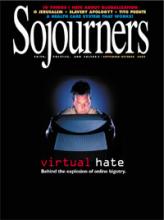Three poets stride across the stage of a small auditorium in Louisville, Kentucky, spinning word pictures of South Carolina grandmothers, the sounds of Mississippi Delta girlhood, and the visions of Martin Luther King Jr., envisioned as rapper King Doctah. The images Nikky Finney, Kelly Norman Ellis, and Frank X. Walker conjure of God, family, and rural life give the event the spirit of a Baptist revival service. At the end of his final selection, Walker roars "Can I get an ‘Amen’?" One hundred-fifty people respond, pushing the poems through the roof.
Some of the bluegrass
is black
enough to know
that being ‘colored’ and all
is generally lost
somewhere between
the dukes of hazzard
and the beverly hillbillies
but
if you think
makin’ shine from corn
is as hard as kentucky coal
imagine being
an Affrilachian
poet—from "Affrilachia," by Frank X. Walker
In 1991, Frank X. Walker attended an event in which four white Kentucky authors and one African-American writer, South Carolina native Nikky Finney, read from their works. Previously billed as an evening of "The Best of Appalachian Writing," the event’s name had been changed to "The Best of Southern Writing" to accommodate Finney.
"Why weren’t African-American writers in Kentucky represented?" Walker remembers asking. The Webster’s Dictionary he consulted later in the evening defined Appalachians as "white residents from the mountains." "It meant I couldn’t be a great Appalachian writer if I wasn’t white," Walker said.
Read the Full Article
